|
|
Post by Deleted on Jul 29, 2013 19:10:15 GMT
From 1983 to 1985, there was an absolutely terrible famine in Ethiopia and Eritrea (not yet independent at the time). Older people may remember this period, because it was when Bob Geldof with Band Aid invented the concept of the "charity song." Of course that was in 1984 when so many people had already starved to death. The video makes one wonder if it should have been called Hair Aid instead. Anyway, since I am the worst son in the world, it was when the famine started that I took my mother on holiday to Ethiopia. This requires a little bit of explanation. After living in France for 9 years, my parents had moved back to the United States in 1981 and they took my grandmother with them at her request (but yes, my mother had offered that possibility). By 1983, the old lady was driving them crazy, so I would organize individual R&R trips for my parents due to my airline employee tickets. One parent would babysit my grandmother while the other one had fun. This worked quite well, except for the fact that in the end, it was decided that my grandmother would be happier back in France, and I am the one who took care of her for 8 years until her death at age 92. She was in a lovely retirement home, but I went to see her very often, too her to the restaurant, walked her around a mall or a park and also deposited her at various family sites for a week or two because frankly, she was a wonderful person and everybody loved her. Okay, I'm getting off track. Back to the Ethiopia trip. My original plan was to offer my mother "a trip around the world" since my father had been in the navy for a long time and and been just about everywhere in the world already. My airline employee tickets covered parents for some routes but not all of them, so I had to face the facts in the end. I couldn't get my mother across the Pacific Ocean, but I was determined to take her on a trip she would never forget. Well, damn, she has forgotten every little bit of it thanks to Dr. Alzheimer, but I have proof that I took her there. The actual route she flew was Raleigh-NYC-Paris-Rome-Asmara-Addis Ababa-Dire Dawa-Djibouti-Aden-Jeddah-Bombay-Singapore-Riyadh-Paris-NYC-Raleigh. Not very logical, I agree. We also had tickets for Beirut, but the situation was not totally stable and it seemed like a bit much, so that was dumped. Anyway, the title of this thread is Addis Ababa - March 1983, so here are a few photos. Coming into Addis Ababa airport... 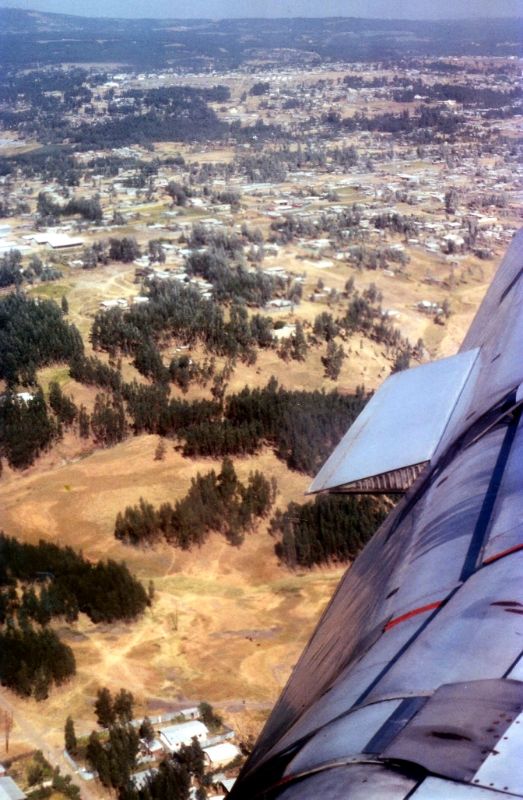 I was still in my fancy hotel phase back then, so I discarded the idea of most of the hotels in the city, so we went to the "second best" hotel of the city after the Hilton which was next to the OAU headquarters. It was the Hotel Ghion. 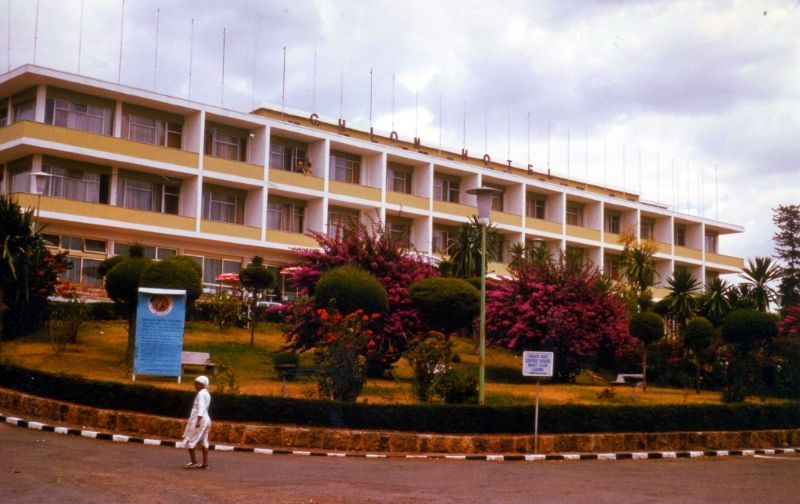 This is the same as my photo but my mother took it, and I want to give her at least one photo on this report. 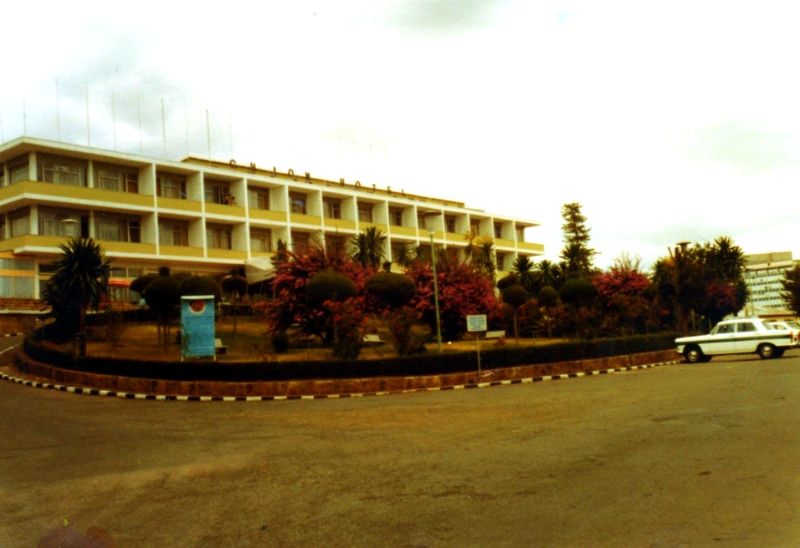 There was a restaurant complex in the hotel where we discovered doro wat. This deserves a whole thread soon. 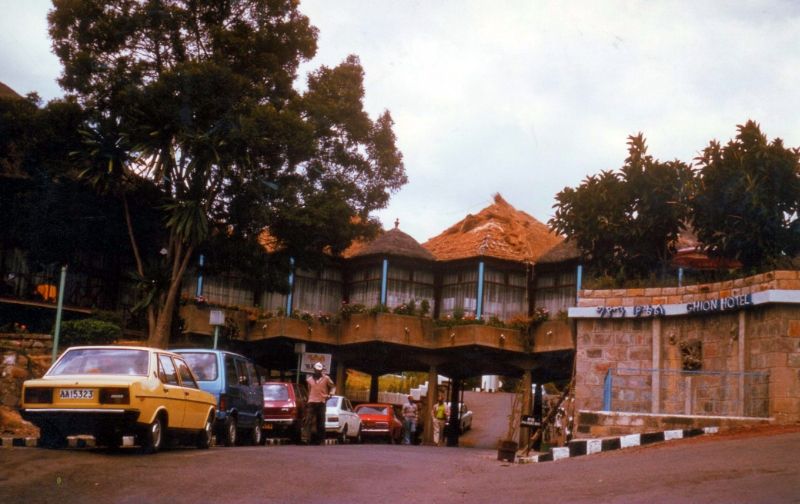 National Bank of Ethiopia - my mother's 2nd and last photo on this thread 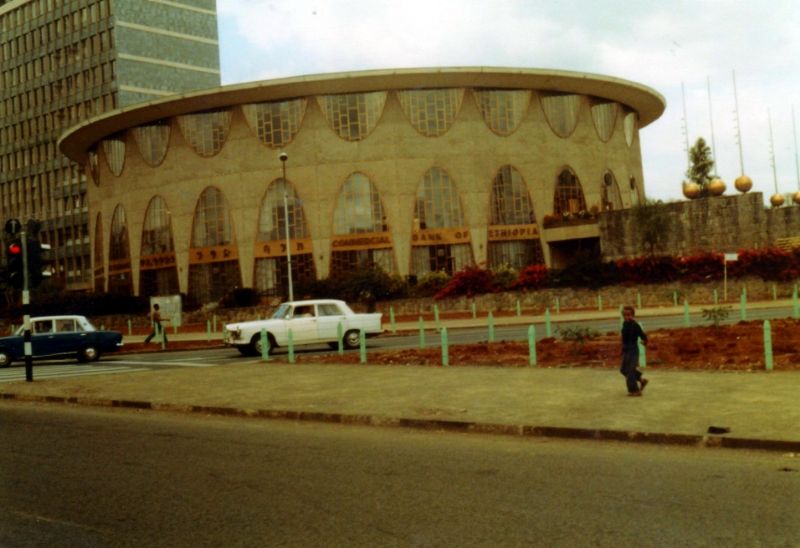 Downtown tried to keep up a few appearances. 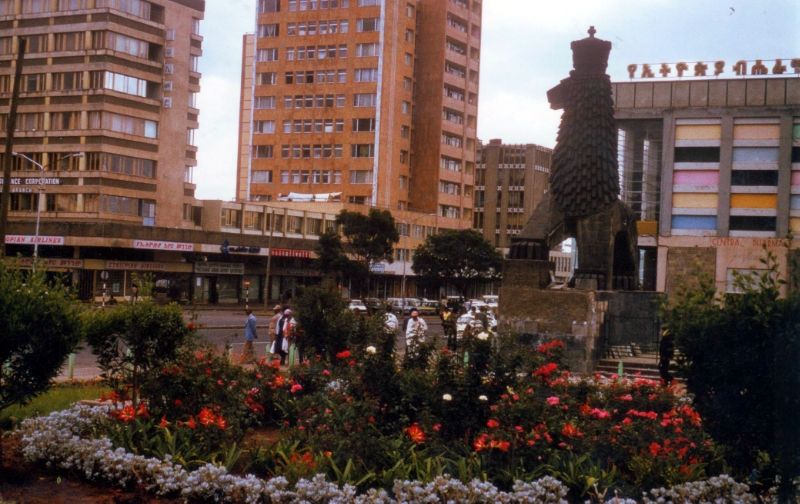 We saw a number of barefoot priests with huge silver crosses. 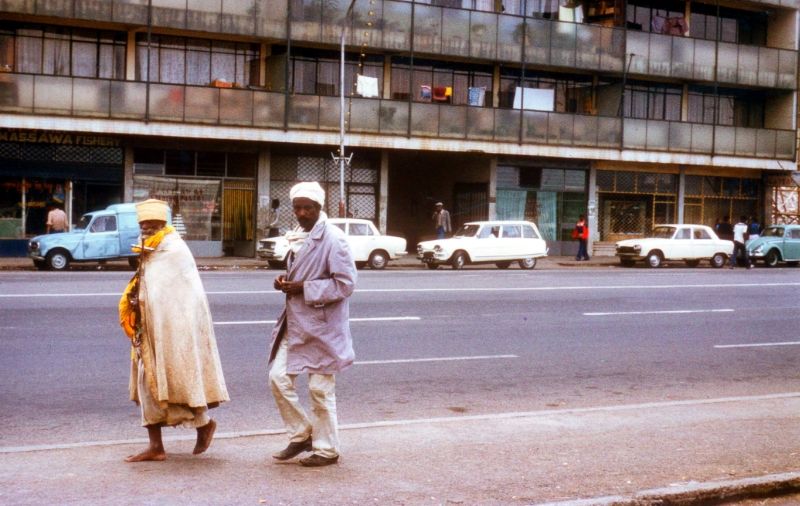 |
|
|
|
Post by Deleted on Jul 29, 2013 19:28:37 GMT
The Ghion Hotel was a pretty amazing place. This was during the communist dictatorship of Haile Mengitsu, who had overthrown Haile Selassie in 1974 and who remained in power until 1987. His reign was called the "Red Terror." In one famous speech, he smashed bottles of blood on the ground to show what would happen to his enemies. Yes, that's where I took my mother on vacation. As you might imagine, we were perhaps the only tourists in the country. The hotel was almost completely empty except for about 30 East German engineers who were living there while they worked on some revolutionary construction project. One of the most amazing contradictions of revolutionary ideology was that they paid for everything using American Express travellers cheques in US dollars, which was basically the only currency accepted in the country. Besides my mother and I and the East Germans, there were quite a few lightly dressed Ethiopian women who sat in the lobby all day waiting to make friends in exchange for American Express travellers cheques. What was impressive about it was that nobody had anything to sell. You would see a woman with two packages of safety pins or a man with three carrots and a bag of weeds (or something that looked like weeds). We wandered into a supermarket which had empty shelves except for three items -- Bulgarian tinned sardines, locally made and pretty awful looking bags of potato crisps, and Sergeant's flea and tick collars. Since there were no cats and dogs to be seen anywhere, we assumed that perhaps people might buy them to put around their starving babies' skinny necks. A major international brand sponsored the bus stops. So nice of them! 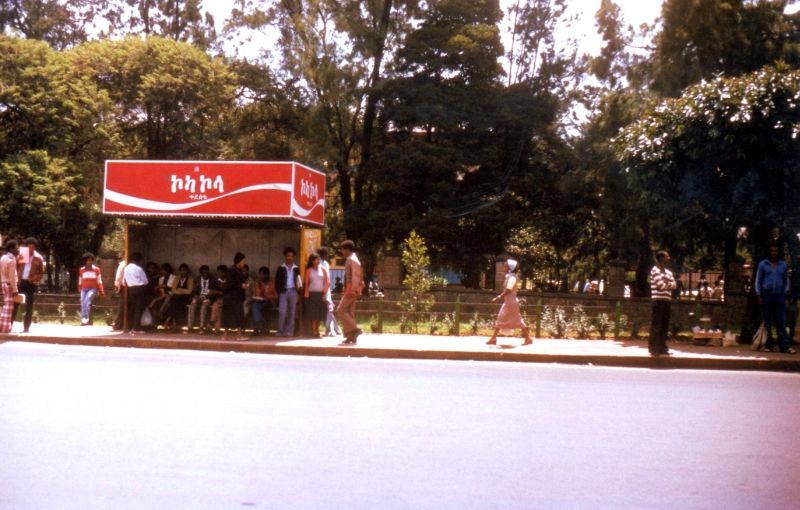 |
|
|
|
Post by Deleted on Jul 29, 2013 21:24:47 GMT
We met a really amazing person as we walked about Addis. Of course we were white magnets to some of the people, although most of them pointedly ignored us, thinking that we were East Germans or Russians, not the most popular or generous people in town.
This guy's name was Meki Nasser -- I never forgot his name. "Yes, like the Egyptian" is one of the reasons for never forgetting his last name. We were extremely wary of him, but he kept following us as he chattered away. He was a student, he said, and spoke 5 languages -- besides Ethiopian, he spoke French, English, Russian and Italian. One's mind boggles in a case like that. He was dressed in rags and I really mean rags -- totally torn shirt and trousers and yet here he was totally well educated, a university student and with a great hunger to find out anything he would about the rest of the world. University classes were suspended "until further notice" and he didn't have the money to go back to see his family somewhere out in the countryside -- they were probably beginning to starve to death anyway -- so he was just "hanging out" in Addis and surviving however he could. It was obvious that a local can survive on very, very little in Ethiopia.
We just knew that he was going to try to get money out of us and we understood why but we didn't want to give him any. But he was just so nice and persistent in his friendly conversation. He was understandably amazed that we were there at all but totally proud that we would choose to see his country.
"I want to show you something," he said. Since we had claimed that we were just walking around, we couldn't really say that we had an urgent appointment anywhere or that we weren't going in that direction, so we glanced at each other and ended up following him. He took us to a sort of hovel put together with just a few boards and sheets of corrugated metal and it seemed to be a drink stand. There was a sort of table and two benches full of young men just hanging out. Or maybe waiting to attack us? They certainly looked at us as though we had just disembarked from our spaceship. Meki said something to them and some of them moved aside so that we could sit down. We didn't really want to sit down, but we absolutely did not want to do anything that might offend anybody. We sat down.
He got down on his hands and knees and pulled a full sized suitcase out from under another bench. "This is my collection," he said.
Collection?
|
|
|
|
Post by htmb on Jul 29, 2013 21:59:09 GMT
Riveting, Kerouac. I'm lookimg forward to hearing more soon.
|
|
|
|
Post by anshjain97 on Jul 30, 2013 2:37:41 GMT
While I'm interested in hearing more about the collection, I must say the city looks cleaner and less chaotic than I thought. Unfortunately your photos of the Mercato aren't showing.
|
|
|
|
Post by bjd on Jul 30, 2013 6:45:33 GMT
Please keep going, Kerouac. I have actually had Ethiopia on the list of countries I would like to visit for a long time now, but somehow doubt I'll get there. No doubt too that it has changed a lot since 1983 and is dirtier and more chaotic.
One of the things I always find impressive in poor countries is that people make an effort to look as good as they can. Look at the people at the bus stop! All neatly dressed, even if the clothes might not be all that clean because of their living conditions.
|
|
|
|
Post by Deleted on Jul 30, 2013 10:46:56 GMT
Well, inside the suitcase there were hundreds of.... who knows what? But they were very intricate and they were obviously all made of silver. There was a fortune in that suitcase. "Do you know what these are?" he asked with a big grin. "Errr... earpicks?" "Yes! Yes! They are traditional earpicks made of silver! I collect them in villages." Nowadays, I would have my camera out and would have already taken 10 pictures, but we were in a drink shack surrounded by strangers whom we had disturbed, even it wasn't our fault. So here is a photo of Ethiopian earpicks from the internet. 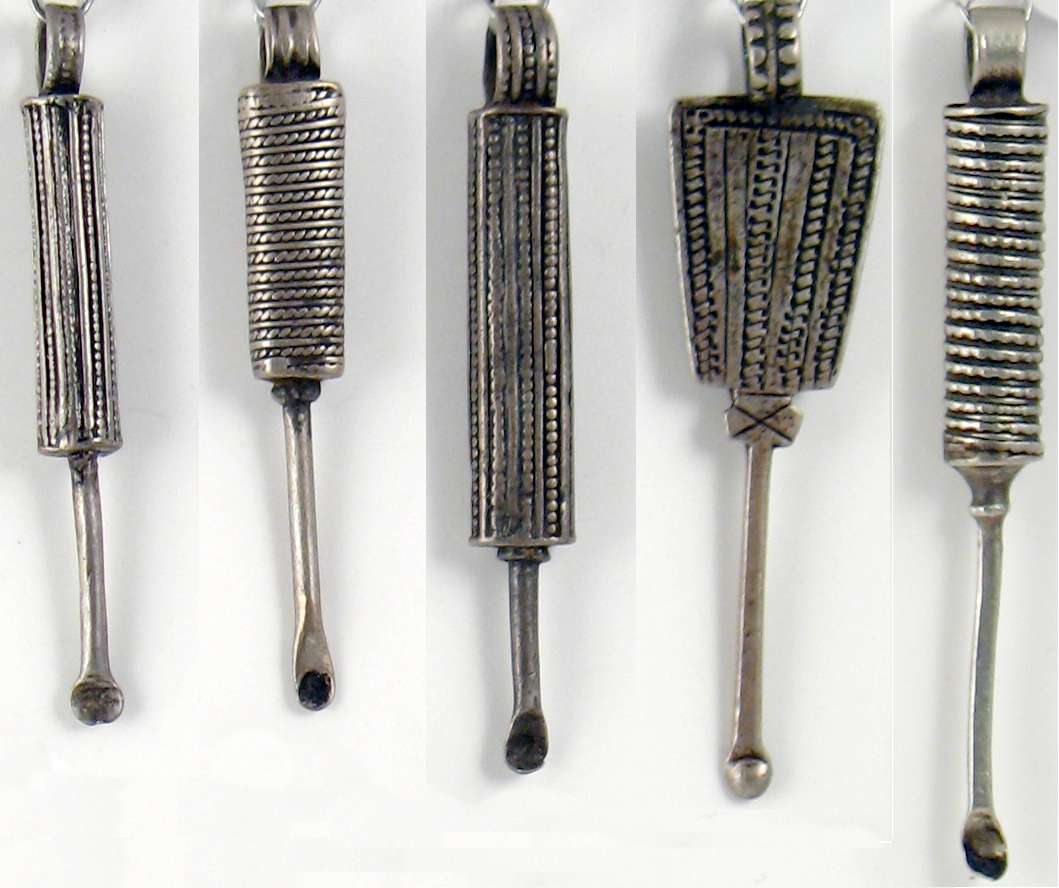 My mother and I looked at each other as we braced ourselves for a sales pitch, but he never made one. He was just so proud to show us his beautiful collection. Anyway, when we had first met him as he was watching who was coming out of the second-nicest-hotel-in-Addis-Ababa and he had pounced with "I'm a poor student; can you help me?" -- I had insincerely explained how poor we were, too, without an extra birr to spare, much less a dollar. But he had tagged along anyway, simply because he had nothing better to do and he wanted to practice both his French and his English. He would in fact write new words down in his notebook as we talked. He was so hungry to learn things. After seeing the collection, we went back to the hotel just to be on our own. There wasn't all that much to do in the city, and since flights were not daily, we couldn't even leave early unless we managed to take the train to Djibouti, which only ran something like once a week, but a departure was imminent. We went to the train station to get information. It seemed a bit expensive, but it was a 24 hour trip across the rocky terrain where Arthur Rimbaud was a gun runner. Well, guns were still part of the trip, because just as we were about to decide to go for it, the man at the ticket office -- after making a phone call -- announced that there would be an additional charge of US$100 for the guard to accompany us. I would agree in a minute now, but back then it was not part of our budget so we gave up our plan to take the train. My mother was all hellfire back then and was so excited about making a trip to places she had never imagined in her wildest dreams. She would have done her own guard duty -- "just give me a gun!" |
|
|
|
Post by htmb on Jul 30, 2013 12:30:26 GMT
In looking up information about ear picks I have learned that "they are often worn a lifetime and passed down through generations."
|
|
|
|
Post by Deleted on Jul 30, 2013 13:26:31 GMT
The next day or two was spent trying to organise a way to leave the country, because a strike was preventing us from flying to the next ticketed point, Sanaa, Yemen. I visited the airline of the People's Republic of Yemen to see if we could transit through Aden without a visa -- or at least get a transit visa upon arrival. This being a rather inch'allah part of Africa, there was no way to get a straight answer or even be certain of the schedule. My mother was beginning to doubt my travel skills, so we took a break at Africa Hall. This was the headquarters of the OAU, now the African Union. It was the nicest building in Addis, although the Chinese have now built a spectacular new building which was inaugurated in 2012. We didn't even know if we could go inside, but they welcomed us in since they weren't getting many visitors. There wasn't much to see except some nice stained glass windows. And those are actually the last photos of Addis that I could find, although I might come across some more. Needless to say, we managed to get out of Ethiopia by flying on a drug flight from Addis to Dire Dawa, where the plane was loaded with bale after bale of qat, and on to Djibouti. But that's all about Addis Ababa, which I would like to see again some day. Internet photos tend to imply that economic times have improved considerably. Other things have changed as well. When I was in Ethiopia, the population was 35 million. Now it is 87 million. As for Meki Nasser and his earpicks, he was at the hotel gate again the day we left, and he requested something from me. "I know you don't have any money to give me, but when you go home, if you have any clothes that you don't need, could you send them? I have no money to buy clothes or books for university, so it would help a lot." I took his address (which was a P.O. Box) and promised that I would send him some clothes as soon as I returned to Paris. And I did. About a month later I filled a big box with clothes I no longer needed or wanted -- mostly because they had gone out of style, but that wouldn't be a problem in Ethiopia -- and I took it to the post office. Since it was a problem country in the middle of a civil war, they wouldn't accept the box at my local post office, but they said I could post if from the main post office, which I did. I had to fill out some forms that I had never seen before, and it cost more more than 100 francs in postage, which seemed like a huge amount. And the postal employee actually had to plot out an acceptable route for the box to go. He saw that it could go by sea to Djibouti and then be transferred by rail to Addis Ababa. So my clothes finally took that train even if I never did. Delivery would not be for at least two months, but in any case, I never really expected the box to actually reach him, or ever to hear from him again. Except after six months, I received a letter from him. It was so gushing with thanks that it brought tears to my eyes. He explained that he had left the city to return to his village when they finally announced how long the university would be closed, and when he returned to Addis, my box was waiting for him at the post office, where it had been sitting for a couple of months. My clothes were perfect and he was stunned that there were so many of them. "I feel like a rich man now." I really wanted to keep in touch with him, but I don't know what happened -- I lost his letter and I lost his address, so that was the last I ever knew of what happened to him.  Maybe he is a rich man now. |
|
|
|
Post by htmb on Jul 30, 2013 13:50:54 GMT
How nice that you still have these pictures. The stained glass is absolutely gorgeous!
There are just so many different facets to this story, Kerouac, it's hard to know which is more mind boggling than the other. You and your mother must have made an interesting duo, and the fact that your mother was interested in making such an incredible, and complicated, journey says a lot for her spirit!
|
|
|
|
Post by bjd on Jul 31, 2013 7:29:05 GMT
Nice story about the clothes. It's good to hear that they arrived and that he managed to get them.
|
|
|
|
Post by lugg on Jul 31, 2013 19:42:20 GMT
I have so enjoyed reading this and looking at the photos taken by your Mum and you. What a fantastic adventure and such a wonderful collection of varied experiences. Your post illustrates so well what a positive impact such journeys and travels can have in many different ways.
I suspect..(.of course I may be quite wrong ), that posting this has been quite an emotional journey in itself.
From a personal point of view I have especially enjoyed it because I am planning to travel there in the next couple of years.
Thank you K2.
|
|
|
|
Post by Deleted on Aug 20, 2013 18:13:58 GMT
The evening news had a major feature tonight showing that the big Chinese garment manufacturers are now moving their production to Ethiopia since China and Bangladesh are too expensive. H&M is the first big customer to test Ethiopian-made goods.
|
|
|
|
Post by anshjain97 on Aug 25, 2013 5:20:22 GMT
That could be great news for Ethiopia.
|
|
|
|
Post by kerouac2 on May 27, 2020 18:17:53 GMT
Addis Ababa has changed so much over the years that I would really like to see it again.
|
|
|
|
Post by lugg on May 28, 2020 19:32:16 GMT
...seeing this thread again makes me want to go too.
|
|
|
|
Post by onlyMark on May 29, 2020 9:30:07 GMT
I drove from Kenya to the capital in 1995 and back from there to Kenya in 1999. I hasten to add I didn't stay there all that time. In 1995 I flew to Khartoum and in 1999 I flew in from Nairobi.
I can see from when you were there it had developed and I'm sure even more so now.
Doro wat and the beef equivalent, sega wat, I found far too spicy and with very poor quality meat, and injeera, the sour bread fermented for four days or so, I found to smell like sick. I ate very little even then in the country as there wasn't much alternative.
In 1999 I was by myself and had flown in to drive a truck empty back to Nairobi that had been left there by another leader/driver when he and his group had flown out like I'd done previously.
In the tribal area of northern Kenya where you had to have a military guard and in a convey, the wheel fell off as the track was extremely rocky and bumpy.
The bearings had collapsed and fortunately I had spares, but the axle was chewed to bits.
I managed to effect a repair under quite some pressure from the two AK47 wielding guards/soldiers who were very nervous about stopping.
|
|
|
|
Post by questa on May 29, 2020 10:41:55 GMT
It's not fair, Mark. You get all the fun!
|
|
|
|
Post by bjd on May 29, 2020 10:53:28 GMT
My son and I took a bus in Kenya from Mombasa to Lamu in 2003. There were soldiers with guns in the front of the bus. The road had been repaired and resurfaced after his previous trip there in 2001 but it was still considered dangerous.
I would like to go to Ethiopia as well.
|
|
|
|
Post by onlyMark on May 29, 2020 11:37:19 GMT
bjd, I went a few years before you to Lamu. But I flew. The road was closed off.
|
|
|
|
Post by spaceneedle on Jun 17, 2020 8:02:24 GMT
Your story of the trip is so touching. Have you tried to find your friend on Facebook K2? He might just be there!
|
|
|
|
Post by kerouac2 on Jan 19, 2023 15:18:54 GMT
Things have certainly changed since I was there 40 years ago.
|
|
















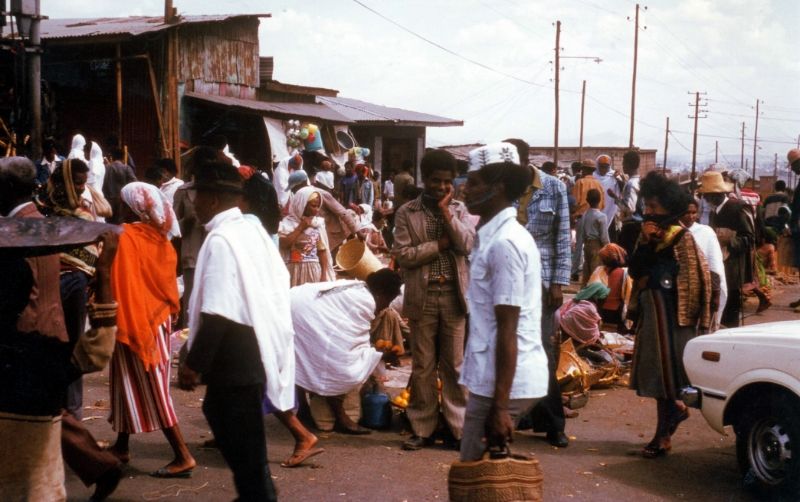
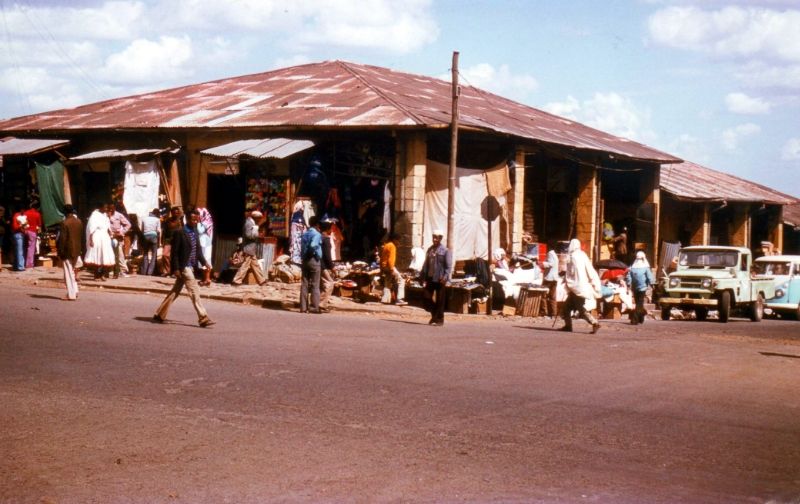
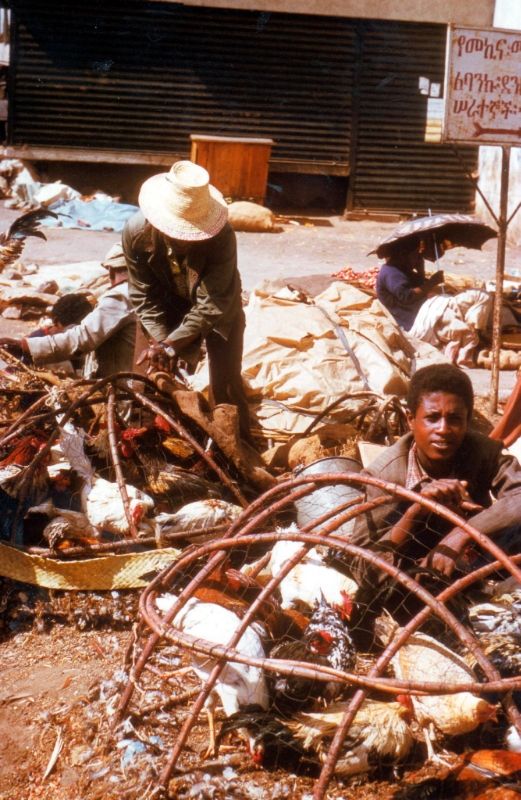



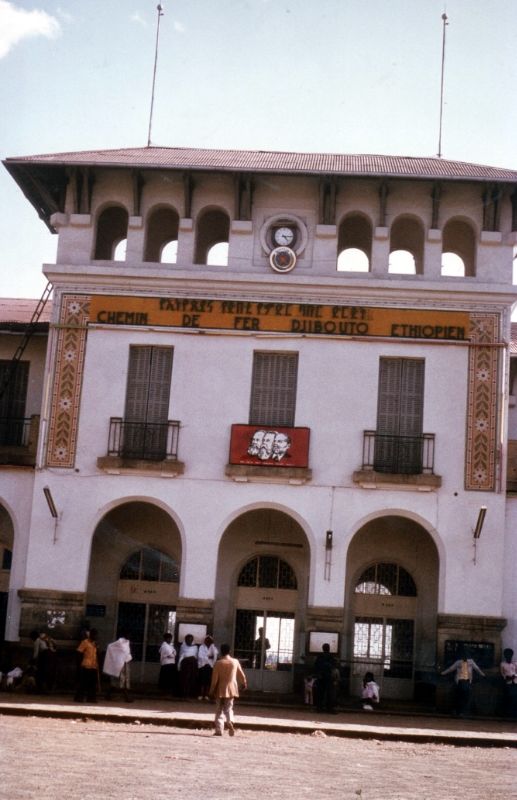
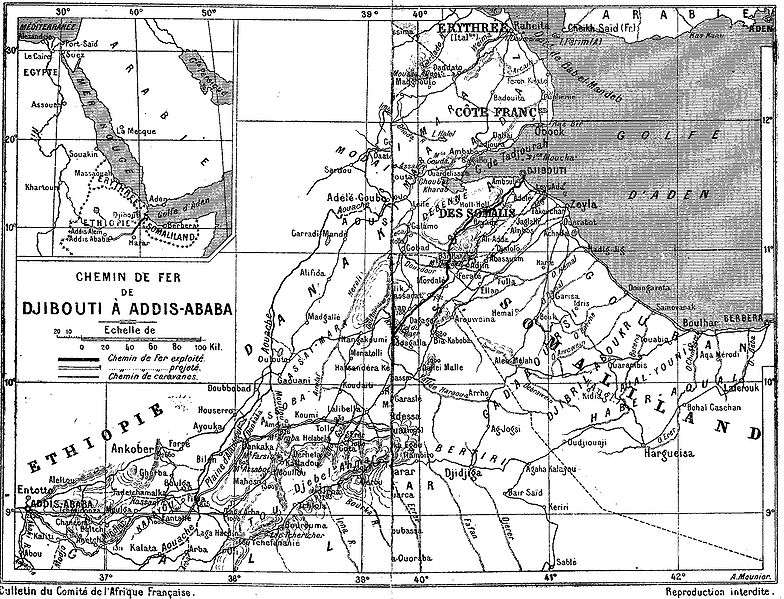
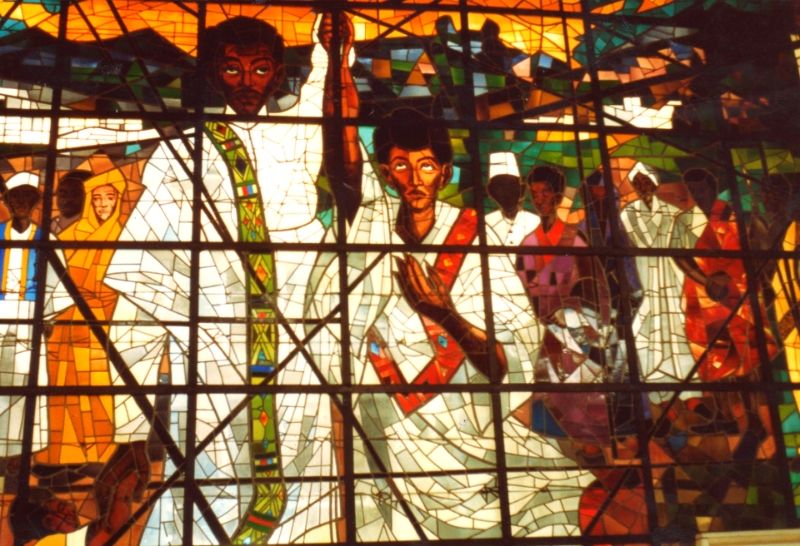
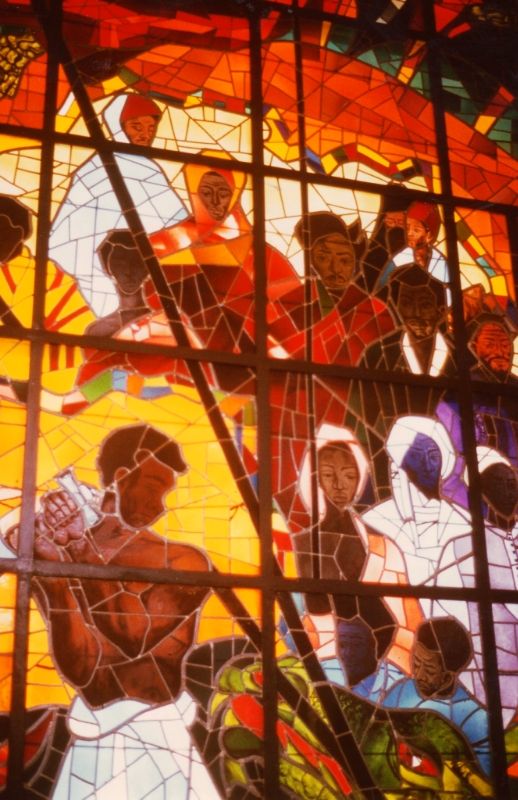

 Maybe he is a rich man now.
Maybe he is a rich man now.